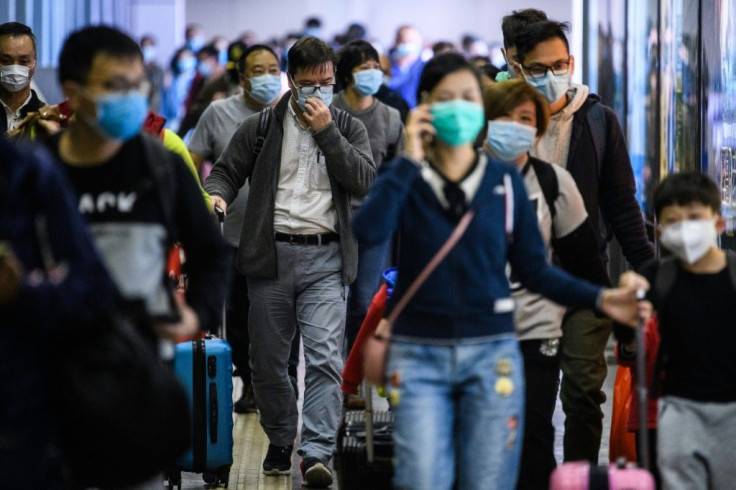China Coronavirus Update: Death Toll Now At 1,013, Could Evolve To Deadlier Disease

KEY POINTS
- The possibility the Novel coronavirus will mutate into an even deadlier disease can't be discounted
- Doctors "want to make certain it doesn’t evolve into something even worse”
- 1,013 deaths have been attributed to the coronavirus as of Tuesday morning, Hong Kong time
The astonishingly rapid spread in China of the Novel coronavirus (2019-nCoV) is stoking fears among doctors this virus might evolve into something even more terrible due to mutations. The Novel coronavirus itself is a mutation of the virus that causes the common cold, and the danger of new mutations is worrisome.
“It’s a new virus. We don’t know much about it, and therefore we’re all concerned to make certain it doesn’t evolve into something even worse,” said infectious disease expert Dr. Ian Lipkin to CNBC on Monday.
Dr. Lipkin is the director of the Center for Infection and Immunity at Columbia University’s Mailman School of Public Health. He recently visited Guangzhou and Beijing where he advised local health officials. He said he didn't travel to Wuhan because it would have been more difficult to return to the U.S.
Dr. Lipkin confirms the Novel coronavirus is “not nearly as challenging for us as influenza” when seen strictly by the number of deaths. Seasonal influenza or the flu kills up to 650,000 people each year worldwide.
Dr. Lipkin, however, cautioned we only shouldn't view the coronavirus outbreak from the lens of its mortlity rate. Transmissibility is another key factor.
“We don’t know much about its transmissibility," he said. "We don’t necessarily have accurate diagnostic tests. And we don’t really know where the outbreak is going to go. The only thing we have at present, absent vaccines or drugs, is containment."
Containment is the only recourse left to health authorities in China striving to keep the outbreak from growing into a pandemic.
While there was a welcome decrease in the number of new Novel coronavirus cases reported in China Monday, the number of new deaths reached a new high in Hubei Province, the launch pad for this outbreak.
The Hubei Provincial Health Committee (HPHC) Tuesday morning reported 103 new deaths in the province attributable to the disease and 2,097 newly confirmed cases. These numbers bring the toll announced by HPHC to 974 and 31,728, respectively, as of Monday. HPHC noted the number of new cases Monday was a significant reduction from Sunday. On the other hand, the number of new deaths reached a new high in Hubei. Officials in Hubei reported 91 fatalities and 2,618 newly confirmed cases on Sunday.
As of 6:00 a.m. Tuesday morning (Hong Kong time), the official toll from the coronavirus stood at 1,013 deaths (all but two in mainland China) and 42,759 confirmed cases. China's National Health Commission (NHC) reported 3,344 persons had recovered from the virus.
The only two deaths outside China are in Hong Kong and the Philippines. The Hong Kong fatality was a man that recently traveled to Wuhan. The man that died in the Philippines was a Wuhan resident who was in the Philippines on vacation.
The coronavirus is also present in 26 countries and territories. Japan has 161 confirmed cases, the largest number outside China. Of this total, 135 are aboard the quarantined cruise ship, Diamond Princess, currently docked in Yokohama. There are 42 cases in Singapore, 35 in Hong Kong, 32 in Thailand, 27 in South Korea, 18 each in Taiwan and Malaysia, 15 in Australia and 14 each in Germany and Vietnam.
Chinese provincial and municipal officials have partially locked down more than 80 cities in 20 of China's 24 provinces and regions to curb the surprisingly quick spread of this highly-contagious virus. China has taken draconian measures in its effort to prevent the virus spreading out of control to the entire country. Among these measures are restricting freedom of travel, controlling the movement of residents and vehicles and restricting access to residential communities and compounds.
© Copyright IBTimes 2024. All rights reserved.





















